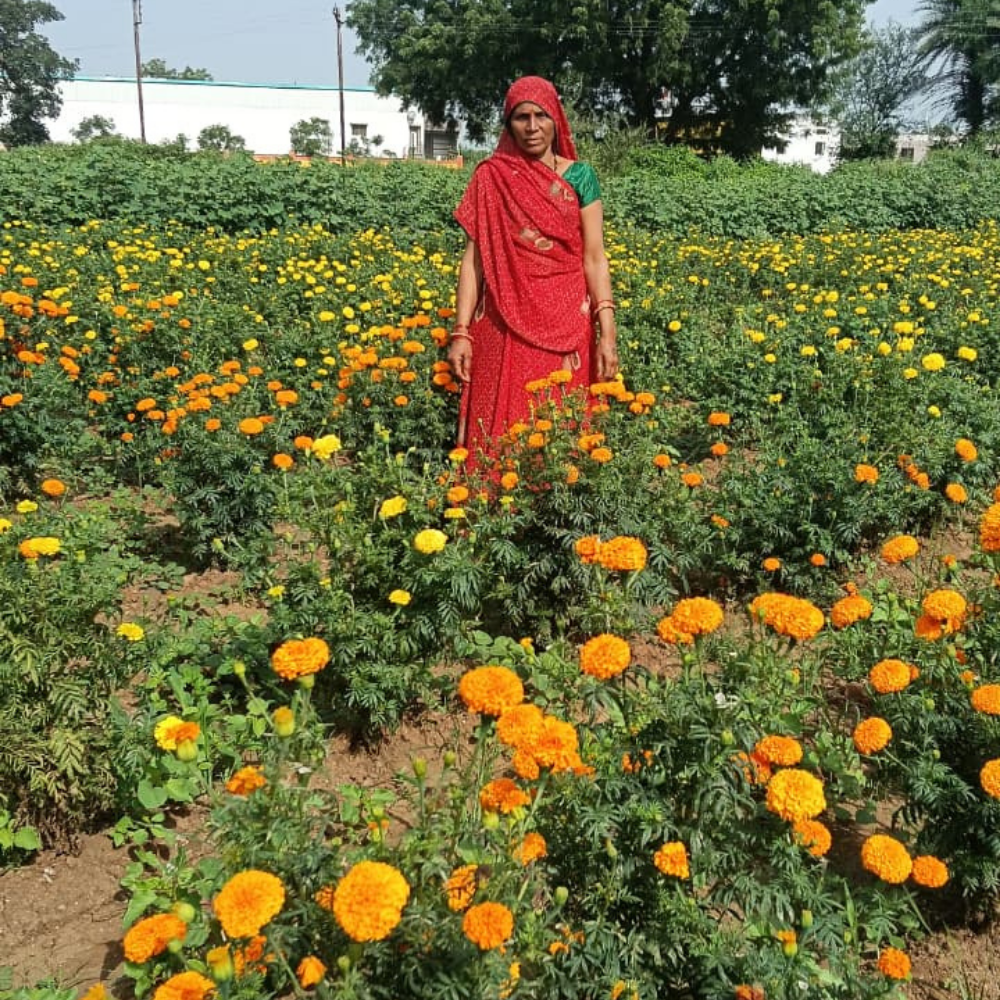- Finding Solutions, Stories from the Field
by Ambreen Azad
Uttar Pradesh

In the remote village of Naravala, Rajpur block, Barwani district, Madhya Pradesh, lives Shivkar— a resilient woman farmer and a proud member of the Gayatri Self-Help Group (SHG). For years, she cultivated traditional crops like cotton, maize, and wheat. These crops sustained her family but left little room for hope or growth. One day, inspired by the empowering vision of the Lakhpati Initiative, she asked herself, “If other women can become Lakhpati Didis, earning their way to greater independence, why can’t I?”
Under the Lakhpati Initiative of the National Rural Livelihoods Mission (NRLM), Transform Rural India (TRI) has been closely working with women like Shivkar, guiding them to realize their livelihood aspirations through a comprehensive process of visioning, planning, and skill-building. TRI’s role went beyond mere encouragement; it facilitated detailed livelihood planning sessions where Shivkar could map out her goals, understand the costs and benefits, and explore new opportunities beyond traditional farming.
“TRI’s team helped me see beyond the crops I had always grown. They showed me how flower cultivation could open new doors. I attended trainings on seed selection, planting techniques, pest management, and market linkages and understood everything before I started,” she recounts with pride.
With the support and motivation from TRI’s visioning process, Shivkar took the bold step to diversify her livelihood. Starting with just half an acre, she began cultivating flowers. She procured quality seeds from the Women Farmer Producer Company and nurtured 3,000 saplings at home, a labor-intensive yet rewarding endeavor she undertook alongside her husband, Jagdish Awase. Remarkably, they managed the entire process themselves without hiring outside labor, underscoring their commitment and confidence.
Today, what was once a cotton field now bursts into vibrant blossoms. Shivkar has already harvested around five quintals of flowers and anticipates another six to seven quintals in the upcoming season. This transition has brought her an income estimated between ₹38,000 and ₹40,000, an encouraging start that promises higher earnings next year.
Shivkar is no longer a silent member of her SHG. She actively participates in meetings, shares her experiences, and inspires other women to explore new livelihood paths. “This is my first year growing flowers, and even though I am still learning, I am determined to expand next year and generate more income. My dream now feels possible,” she says, her voice filled with newfound confidence.
Through tailored training, meticulous planning support, access to quality inputs, and ongoing encouragement, TRI has empowered Shivkar to transform her livelihood. Her journey highlights how strategic interventions can enable women farmers to not only improve their economic status but also emerge as influential leaders within their communities. TRI’s approach demonstrates the power of sustained support in turning aspirations into measurable progress.
agriculturefarmersGenderwomen
Reach us at
TRI Square,
43 Community Centre Zamrudpur,
Kailash Colony Extension,
Behind Hanuman Mandir,
New Delhi,
Delhi 110048
+91 11 2923 1314